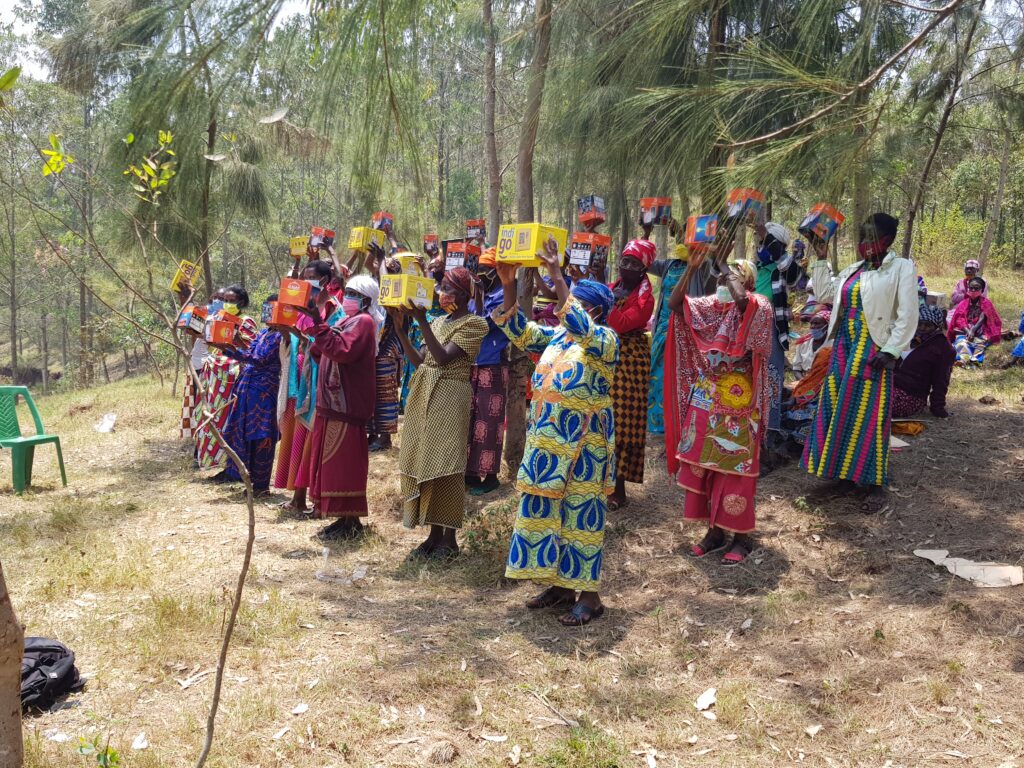
Continuing our series of articles from our Annual Report 2021/22, we outline here our work on our COVID-19 Emergency Nutritional Response for Vulnerable Genocide Widows in Western Rwanda (CENREV) Project.
Survivors Fund (SURF) and AVEGA Agahozo were awarded a new UK Aid Direct grant in October 2020 to directly respond to the impact of COVID-19 in Rwanda, one of only 33 such grants approved by the UK Government through the programme – which enabled support to be delivered in 16 countries.
The COVID-19 Emergency Nutritional Response for Vulnerable Genocide Widows in Western Rwanda (CENREV) Project aims to reinforce existing interventions in three districts of the Western Province of Rwanda, namely Rusizi and Nyamasheke – where our current UK Aid Direct project (EVWEP) is operational – and the neighbouring district of Karongi, which is the focus of a parallel project funded by the Addax & Oryx Foundation (EVKEP). The work covered all 46 of their sectors across a six month period through to March 2021.
Cash transfers and distribution of livestock to vulnerable survivor-headed households was undertaken successfully. 490 direct beneficiaries have received nutritional support for their households through mobile cash transfers, which has enabled over 1,000 persons to be supported over this time (including dependents of the beneficiaries). A total of 1,960 cash transfers were made by 31st March.
The cash transfers were made through mobile money by MTN Mobile Money (MoMo) platform. AVEGA has much experience using the platform for making such transfers, for which beneficiaries all have mobile phones to receive them. We received very good feedback from the beneficiaries of the mobile cash transfers who stated that it improved their confidence to manage their resources and make decisions about their future.
960 livestock consisting of 290 goats, 30 pigs 288 chickens and 352 rabbits were procured and distributed to 504 survivor-headed households. This activity was challenging due to COVID-19 preventative measures (which restricted movement across districts over much of the grant period) but we were able to navigate the challenges and delivered the support in time as planned. The livestock were given at different times according to their type.
